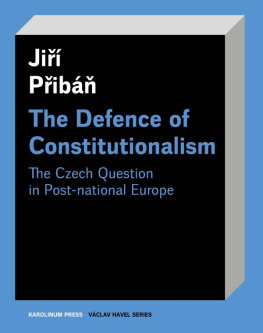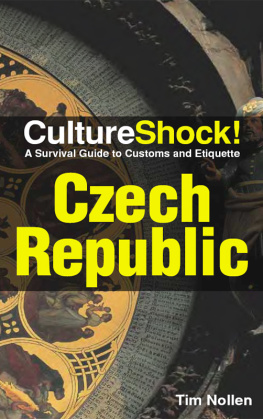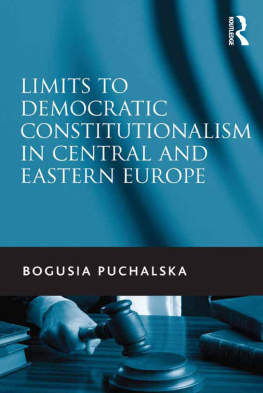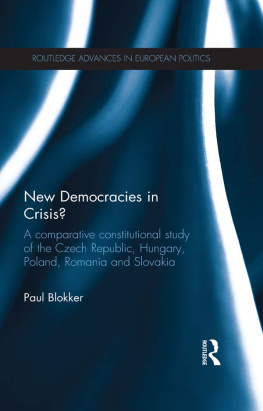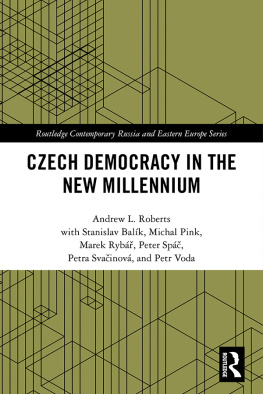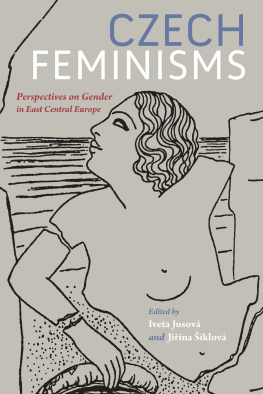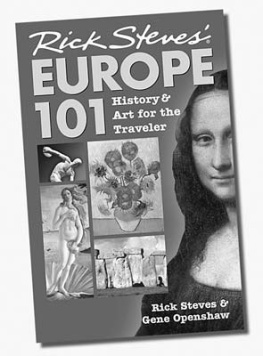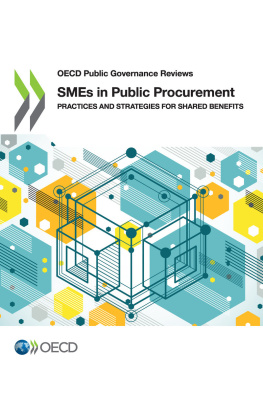JI PIBS SOCRATIC WARNINGS
A book has entered the Czech market that feels like an ominous harbinger of what is to unfold in and beyond the Czech Republic. Politics, which we thought may have been occasionally inefficient, lame and slow... and yet an irreplaceable pluralist vehicle for the free to settle their differences, is losing its prestige, respectability and credibility far and wide not only in many places in Europe, but also in the United States before our very eyes. It is as though the West were losing confidence in itself, as though, in all sorts of areas, it were shedding the belief that the only possible answer to humanitys problems lies in jockeying for power and in its constitutionally guaranteed distribution rather than its concentration. It is not only Pibs homeland, but also Central Europe and, indeed, many places in America that harbour a fascination, whether overt or cloaked, with the monolith of power in the authoritarian regimes of Russia and China. Politics as procedurally governed appeasement is turning into a pet hate of populist parties and movements. The Constitution as a fortress in which politics can yield generally viable solutions is perceived as a distasteful inconvenience that needs to be circumvented.

Pib completed his law studies in 1989 and stayed on at the faculty in Prague as a teacher, where his brilliance quickly shone through. This bright light, however, soon began to forge links with Cardiff Law School in Wales. I remember many people in his circle bemoaning the fact that they had found their own charismatic thinker at long last, only to see him immediately slip from their grasp. Pib continued to whittle away at his duties in Prague in order to take on a fuller engagement in Cardiff. These days, he is but a frequent guest in the Czech capital.
A while ago, opportunity came knocking for Ji Pib in the form of a constitutional judgeship. If he had wanted the job, it was probably his. However, he is determined to think, lecture and write in the midst of lively discourse among the worlds doyens of legal philosophy and sociology of law.
Besides, it is a long time since he last thought solely along the lines of a lawyer. To be sure, jurisprudence especially the constitutional sort, bare of philosophical reflection and the insights imbibed by sociology of law and political science is a useful and lucrative craft, but society is not to be understood by paragraphs of written law.
Physically, then, Ji Pib is now just a guest in Prague, but, courtesy of all kinds of networks, he has remained with us in his receptive spirit, one of only a handful of our people across the world to do so. And thus, having worked his way over time to the Socratic position of someone obliged to no one, a rival to nobody, no mans vassal, he is free to speak his mind.
His actions would by no means mark him out as an academic alone: with his prolific journalism, he acts like Socrates walking the streets of Athens as he ropes passers-by into discussion over and over again without letting up. He has a tendency to ask the uncomfortable, provoke thought, warn us. In doing so, he unwittingly betrays that globalisation also has a salubrious side: we can now live far from home, yet maintain a strong relationship of personal responsibility towards it.
What is more, Pib safeguards his independence from the world of politics by cultivating personal relationships with a number of figures from the modern Czech art scene. Their work plainly spurs him on towards a peculiar understanding of our time that is moulded by more than just words newspapers, television and the rhetoric of politicians.
This triple-lock independence physical remoteness, separation from the world of politics, and a keen relationship with the domain of shapes and colours is now bearing extra fruit in the form of essays originally gracing the pages of Czech periodicals.
I am bursting to say: brace yourself, reader, for the pure joy of intelligent, clear and provocative reading awaits you! Such a plethora of precise, brutal, witty observations, what a slew of allusions to startling contexts! As many a lesson as is or ever was elsewhere in the world. Yet joy, sadly, is not the word that best describes the readers feelings.
Reports on the state of Czech and European society are extremely unsettling in Pibs interpretation. And by no means just those that concern local politicians, political parties, and the parliamentary life of the country. If the Czech public were healthier, especially more civil, and were it not so intellectually complacent, some of its elected representatives would not be able to get away with as much as they do. In particular, they could not afford to purge politics, bit by bit, of all content, disputes on priorities, ideas and ideals, or even deny or disown politics per se.
Pibs attitude is explicitly anti-populist a populist summarily condemns politicians and politics and agrees with the people, pure and fair, in everything up front... We find ourselves today in a dangerous situation of heightened political uncertainty, where everyone shares common concerns but is unable to agree on either specific risks or political threats.
In the absence of politics, i.e. without the Right and the Left, the free competition of political parties, or free will and the ability to distinguish and separate politics from economics, morality, and religion, slowly but surely everything up there will henceforth be nothing more than wheeling and dealing between the heads of major economic groupings. This is already the case to some extent, though most are blind to it. In fact, the public has no wish to see any of this! Instead, it rejoices, glad that someone is finally granting it absolution, offering it respite from dirty politics by vindicating its intellectual indolence.
Civil society is starting to be assailed from above (not just in the Czech Republic, where this is exemplified by the president) as parasitic, useless structures sponging effortlessly and mindlessly off the government (some receive subsidies) and above all, it is claimed, scrounging cash from foreigners. To wit, from those meddling in the internal affairs of our country. For those that remember, there is incredible resonance here with the language of the regimes collapsing in 1989. This situation is even more advanced in Orbns Hungary, no doubt directly inspired by Putins Russia, where NGOs must register themselves or, more accurately, denounce themselves as agents of a foreign power in a move tantamount to their muffled extermination.
Pib warns: The civil public has no choice but to bypass the party (and power) apparatus and protest directly in campaigns of civil disobedience or open revolt. This is the only way of reminding parties that their politics also have a non-political plane and importance. Otherwise, the voice of the people soon mutates into the hollow cries of a fanaticised, deaf mass allowing itself to be led anywhere by anyone. And it would appear that there are more than enough candidates to take on the role of such a leader!

